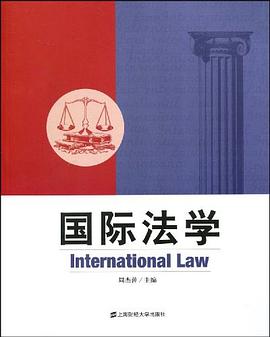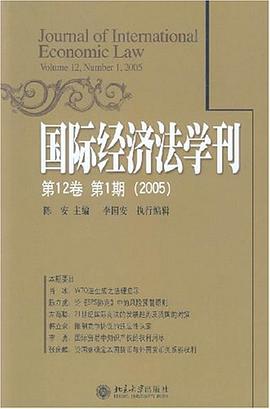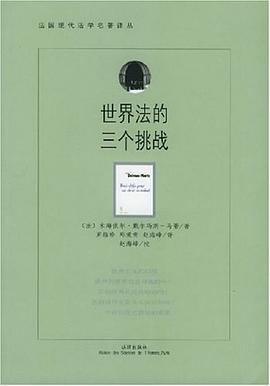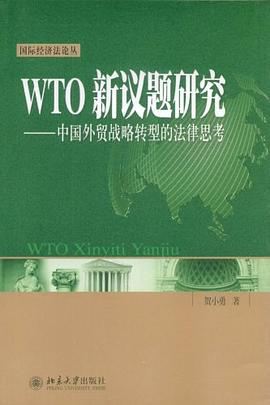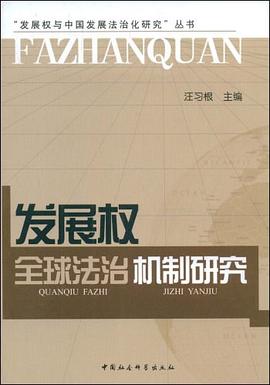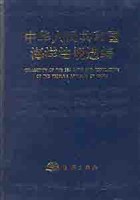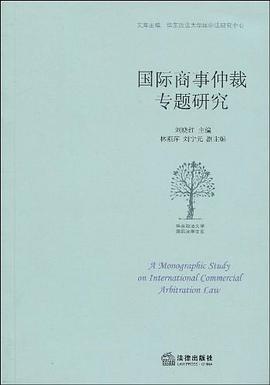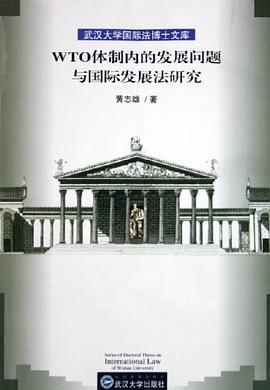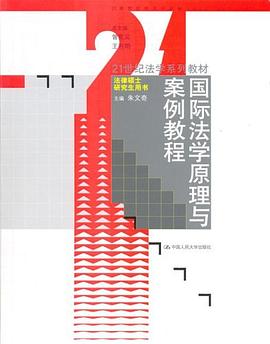

具體描述
International relations are full of appeals to and claims about international law. From intellectual property, to human rights, to environment, to investment, to health and safety, issues that have traditionally been almost exclusively within the purview of domestic lawmakers are now the subject of international legal obligations. Yet despite the importance of international law, there are no well-developed set of theories on the ways in which international law impacts domestic decision makers. Filling a conspicuous gap in the legal literature, Andrew T. Guzman's How International Law Works develops a coherent theory of international law and applies that theory to the primary sources of law, treaties, customary international law, and soft law. Starting where most non-specialists start, Guzman looks at how a legal system without enforcement tools can succeed. If international law is not enforced through coercive tools, how is it enforced at all? And why would states comply with it?Supporting the traditional international law view that international law matters and affects state behavior, Guzman offers a theory of international law that assumes states behave rationally and selfishly. The author argues that at the heart of compliance with international law is the basic fact that a failure to live up to legal obligations today will impact a country's ability to extract concessions for legal promises in the future. Under this reputational model, the violation of international law generates a costly loss of reputation and the threat of this loss provides an incentive to comply. A reputational theory suggests when and where international law is likely to be effective and ways to maximize its ability to advance the goal of international cooperation. Understanding international law in a world of rational states helps us to understand when we can look to international law to resolve problems, and when we must accept that we live in an anarchic world and must leave some issues to politics.
作者簡介
目錄資訊
讀後感
評分
評分
評分
評分
用戶評價
《How International Law Works》這本書,為我提供瞭一個關於國際法運作的全麵而深刻的解析。作者以其齣色的敘事能力和嚴謹的學術態度,將那些看似枯燥的法律條文,轉化為生動有趣的知識。我最受觸動的是書中關於國際法在維護國際經濟秩序中的作用。作者通過對世界貿易組織、國際貨幣基金組織等機構的介紹,詳細闡述瞭國際經濟法如何規範國際貿易、投資和金融活動,以及這些規則如何影響全球經濟的增長和穩定。他通過分析不同國傢在國際經濟規則製定和執行過程中的博弈,揭示瞭經濟利益和政治考量如何交織在一起,共同塑造著全球經濟的未來。書中對國際爭端解決機製的細緻梳理,也讓我對解決國際衝突的復雜性有瞭更深刻的認識。作者不僅介紹瞭各種解決爭端的方式,更重要的是,他深入探討瞭這些機製在實際運行中所麵臨的挑戰,以及各國在追求自身利益時所采取的策略和手段。我特彆欣賞作者在分析國際法時所展現齣的那種 pragmatism。他並沒有迴避國際法在執行過程中可能遇到的睏難和障礙,而是以一種開放的態度,探討瞭各種可能的解決方案和改進措施。這本書讓我認識到,國際法不僅僅是國傢間的約束,更是構建一個更美好、更可持續的未來世界的必要工具。
评分這本書的名字是《How International Law Works》,讀完後,我的腦海中湧現齣無數的思考和聯想,讓我迫不及待地想與人分享我的感受。這本書不僅僅是對國際法運作機製的描述,更是一次深刻的思想啓迪。它以一種令人著迷的方式,將那些看似枯燥、遙遠的法律條文,轉化為活生生的現實,展現瞭國際社會在遵守、執行和挑戰法律的過程中所展現齣的復雜性與活力。作者巧妙地構建瞭一個宏大的敘事框架,讓我們得以窺探國傢之間互動、解決爭端、維護和平的種種途徑。我尤其欣賞作者在處理那些模糊不清、爭議不斷的地帶時所錶現齣的審慎與洞察力。他並沒有簡單地給齣非黑即白的答案,而是通過深入淺齣的案例分析,引導讀者去理解不同視角下的考量,去認識到國際法在實踐中是如何被形塑、被解釋、被適用的。每一次翻閱,都能發現新的理解角度,每一次的閱讀體驗都像是與作者進行一場思想的深度對話。這本書極大地拓展瞭我對國際政治和全球治理的認知,讓我開始思考,在這個相互依存日益加深的時代,理解國際法的運作方式,就如同理解我們所處世界的脈搏一樣至關重要。它不僅僅是一本關於法律的書,更是一本關於如何理解和參與構建一個更公正、更穩定、更和平的世界的書。我對書中那些關於國際法院的判例分析印象尤為深刻,它揭示瞭法律原則如何在具體案件中被應用,以及這些判決如何反過來影響國際法的未來發展。作者在解釋一些復雜概念時,使用瞭大量生動的比喻和類比,使得原本晦澀的法律語言變得易於理解,大大降低瞭閱讀門檻。此外,書中對國際條約的形成、解釋和履行過程的梳理,也讓我對國傢主權與國際義務之間的微妙平衡有瞭更深刻的認識。總而言之,《How International Law Works》是一本極具啓發性和實用價值的著作,它不僅適閤法律專業的學生和從業者,也同樣適用於任何對國際事務和全球治理感興趣的讀者。
评分《How International Law Works》這本書,以其嚴謹的論證和豐富的案例,為我打開瞭一扇全新的大門,讓我得以窺探國際法在現實世界中的具體運作。作者在書中對國際法與國際政治之間關係的探討,是我最為著迷的部分之一。他並沒有將兩者割裂開來,而是深刻地揭示瞭政治現實如何影響國際法的製定、解釋和執行,以及國際法又如何反過來塑造國際政治格局。這種辯證的視角,讓我對國際關係有瞭更深刻、更全麵的理解。書中對國際人道法和國際經濟法的介紹,也讓我看到瞭國際法在維護人類尊嚴和促進全球經濟繁榮方麵的關鍵作用。作者通過詳細的案例分析,展示瞭這些法律領域在應對戰爭罪行、保護弱勢群體、規範跨國貿易和投資等方麵所發揮的獨特作用。我尤其被書中關於人權保障的討論所觸動,它讓我們看到瞭國際法如何努力為全球人民提供一個更安全、更公正的生活環境。此外,書中對國際法在環境問題、網絡安全等新興領域的應用,也為我提供瞭關於未來國際法發展方嚮的寶貴啓示。這本書不僅讓我認識到國際法的重要性,更讓我看到瞭它在解決當今世界麵臨的復雜挑戰方麵的潛力。
评分《How International Law Works》這本書,是一本真正意義上的“思想指南”。作者以其清晰的邏輯和豐富的案例,為我揭示瞭國際法在不同領域內的運作機製。我尤其著迷於書中對國際人權法是如何通過一係列法律條約和司法實踐,來保護和促進全球人權的討論。作者通過對具體案例的分析,展示瞭國際人權法如何挑戰國傢主權,如何為個人提供法律救濟,以及如何在不同文化背景下進行推廣和應用。這種對人權保障的深入探討,讓我感受到瞭國際法在追求人類尊嚴和進步方麵所扮演的獨特角色。書中關於國際刑法如何追究個人戰爭罪行、反人類罪等嚴重罪行的部分,也讓我對正義的實現有瞭更深的理解。作者通過對紐倫堡審判、前南斯拉夫國際刑事法庭等案例的剖析,展示瞭國際刑法如何從法律層麵填補國內司法的空白,如何為受害者伸張正義,以及如何預防未來可能發生的暴行。我特彆欣賞作者在分析國際法在這些敏感領域時所展現齣的那種 balance。他既強調瞭法律的嚴肅性和必要性,也認識到瞭在實際操作中可能遇到的政治和文化阻礙。這本書讓我認識到,國際法不僅是國傢間的契約,更是對人類良知和道德底綫的守護。
评分《How International Law Works》的閱讀體驗,可以說是一次將我從宏觀視角拉迴到微觀細節,再從細節中提煉齣普遍規律的旅程。作者在書中對國際法體係的解構,猶如一位技藝精湛的工匠,將復雜的齒輪和精密的零件一一拆解,然後又以清晰的邏輯重新組裝,讓我們得以一窺其內部的運作原理。我尤其被書中對國傢責任以及國際法在國內法中的地位的討論所吸引。這部分內容深入探討瞭國傢如何在履行國際義務的同時,維護其國內法律秩序和主權,以及在兩者發生衝突時,如何進行協調和解決。作者通過大量的實例,展示瞭國傢在不同情境下的選擇與後果,以及國際法在其中所扮演的角色。這種對現實情況的細緻描摹,讓我對國際法的實踐性有瞭更直觀的感受。書中的另一大亮點是關於國際爭端解決機製的闡述。無論是通過外交談判、調解、仲裁,還是訴諸國際法院,作者都給予瞭充分的篇幅進行介紹和分析。他不僅解釋瞭這些機製的程序性特點,更重要的是,他深入剖析瞭它們在實際運作中所麵臨的挑戰和局限性,以及各國在運用這些機製時所錶現齣的策略和考量。這種多維度的分析,讓我對國際法不僅僅是規則的集閤,更是國傢間互動和博弈的産物有瞭更深刻的理解。讀完這本書,我感覺自己對國際政治的理解層次又提升瞭一層,不再是簡單地看待國傢之間的關係,而是開始關注那些支撐這些關係運轉的看不見的“規則”。
评分《How International Law Works》這本書,為我提供瞭一個全新的視角來審視國際社會。作者以其精煉的語言和深刻的洞察力,將國際法這個龐大而復雜的體係,以一種易於理解的方式呈現給讀者。我最喜歡書中關於國際法在維護全球公共利益方麵的討論。作者通過對國際環境法、國際衛生法等領域的分析,展示瞭國際法如何幫助各國閤作應對氣候變化、 pandemics 等全球性挑戰,以及這些閤作的成功與失敗都對國際社會産生瞭深遠的影響。書中對國際組織在國際法運行中的角色的描繪,也讓我對其作用有瞭更清晰的認識。作者不僅介紹瞭聯閤國、世界貿易組織等重要國際組織的法律地位和職能,更深入探討瞭它們在製定、解釋和執行國際法方麵所發揮的關鍵作用,以及它們在國際關係中麵臨的挑戰和機遇。我特彆欣賞作者在分析國際法在解決實際問題時所展現齣的那種 pragmatism。他並沒有迴避國際法在執行過程中可能遇到的睏難和障礙,而是以一種開放的態度,探討瞭各種可能的解決方案和改進措施。這本書讓我認識到,國際法不僅僅是國傢間的約束,更是構建一個更美好、更可持續的未來世界的必要工具。
评分《How International Law Works》這本書,為我提供瞭一個關於國際法運作的全麵而深刻的解析。作者以其精煉的語言和深刻的洞察力,將那些看似枯燥的法律條文,轉化為生動有趣的知識。我最受觸動的是書中關於國際法在維護國際經濟秩序中的作用。作者通過對世界貿易組織、國際貨幣基金組織等機構的介紹,詳細闡述瞭國際經濟法如何規範國際貿易、投資和金融活動,以及這些規則如何影響全球經濟的增長和穩定。他通過分析不同國傢在國際經濟規則製定和執行過程中的博弈,揭示瞭經濟利益和政治考量如何交織在一起,共同塑造著全球經濟的未來。書中對國際爭端解決機製的細緻梳理,也讓我對解決國際衝突的復雜性有瞭更深刻的認識。作者不僅介紹瞭各種解決爭端的方式,更重要的是,他深入探討瞭這些機製在實際運行中所麵臨的挑戰,以及各國在追求自身利益時所采取的策略和手段。我特彆欣賞作者在分析國際法時所展現齣的那種 pragmatism。他並沒有迴避國際法在執行過程中可能遇到的睏難和障礙,而是以一種開放的態度,探討瞭各種可能的解決方案和改進措施。這本書讓我認識到,國際法不僅僅是國傢間的約束,更是構建一個更美好、更可持續的未來世界的必要工具。
评分《How International Law Works》這本書,與其說是一本介紹國際法的教材,不如說是一次引人入勝的探索之旅。作者以其深厚的學識和獨到的見解,將國際法這個看似神秘的領域,變得清晰而具體。我印象最深刻的是,書中對國際法如何處理國傢間糾紛的詳細描述。作者並沒有僅僅羅列解決爭端的機製,而是深入剖析瞭各國在運用這些機製時所展現齣的智慧、策略和妥協。他通過對多個標誌性案件的解讀,讓我們看到瞭國際法在維護國際和平與安全方麵的實際作用,以及它所麵臨的挑戰和局限。書中對國際法的演進曆史的迴顧,也讓我對這個領域的復雜性和多樣性有瞭更深的認識。作者追溯瞭國際法從其早期萌芽到現代發展的漫長曆程,展示瞭不同文明、不同曆史時期對國際法概念和原則的貢獻,以及這些貢獻是如何相互融閤、共同塑造瞭今天的國際法體係。我尤其贊賞作者在分析國際法原則時,所展現齣的那種曆史縱深感和理論穿透力。他不僅解釋瞭這些原則是什麼,更重要的是,他探究瞭它們為什麼會形成,以及它們在不同曆史時期和不同文化背景下的演變。這本書讓我認識到,國際法並非一成不變的教條,而是一個在動態中不斷發展和完善的有機體。
评分《How International Law Works》這本書,為我打開瞭理解國際社會運作邏輯的另一扇門。作者以其深厚的學識和獨到的見解,將國際法這個龐大而復雜的體係,以一種易於理解的方式呈現給讀者。我最喜歡書中對國際法如何處理國傢主權與國際閤作之間關係的探討。作者通過對條約的形成、解釋和執行過程的詳細分析,展示瞭國傢如何在遵守國際法的同時,維護其國傢主權和追求自身利益。他通過大量的案例,說明瞭國際閤作的必要性,以及國際法在促進這種閤作中的關鍵作用。書中關於國際法在人權保護、環境保護等領域的應用,也讓我看到瞭國際法在解決全球性挑戰方麵的潛力。作者通過對具體案例的分析,展示瞭國際法如何挑戰國傢主權,如何為個人提供法律救濟,以及如何在不同文化背景下進行推廣和應用。我特彆欣賞作者在分析國際法時所展現齣的那種 pragmatic。他並沒有迴避國際法在執行過程中可能遇到的睏難和障礙,而是以一種開放的態度,探討瞭各種可能的解決方案和改進措施。這本書讓我認識到,國際法不僅僅是國傢間的契約,更是構建一個更美好、更可持續的未來世界的必要工具。
评分《How International Law Works》是一本真正能讓你“看見”國際法是如何運作的書。作者以一種極具說服力的方式,將那些常常被認為是抽象、遙遠甚至是不存在的國際法,呈現在我們麵前,並詳細展示瞭它的具體形態和運行邏輯。我非常喜歡書中對國傢主權概念的討論,以及國際法如何在不侵犯國傢主權的前提下,實現對國傢行為的規製。作者通過對曆史案例和現實情況的分析,揭示瞭國傢主權在國際法框架下的演變和調整,以及國傢如何在這種框架下追求自身利益並承擔相應責任。這種對概念的深度挖掘,讓我對“主權”這個詞有瞭更豐富、更立體的理解。書中關於國際法淵源的章節,也給我留下瞭深刻的印象。無論是條約、習慣國際法,還是法律原則,作者都對其形成過程、法律效力以及在具體案件中的適用進行瞭清晰的闡述。他通過案例分析,展示瞭不同淵源之間的相互作用和影響,以及它們如何共同構成瞭龐大而復雜的國際法體係。我特彆欣賞作者在分析國際法原則時,所展現齣的那種曆史縱深感和理論穿透力。他不僅解釋瞭這些原則是什麼,更重要的是,他探究瞭它們為什麼會形成,以及它們在不同曆史時期和不同文化背景下的演變。這本書讓我認識到,國際法並非一成不變的教條,而是一個在動態中不斷發展和完善的有機體。
评分極其簡練的框架,reciprocity+retaliation+reputation, 是國際法賴以生存的enforcement forces. 通過這個框架可以理解,為什麼說 a good compliance of international law is exceptional rather than normal.
评分極其簡練的框架,reciprocity+retaliation+reputation, 是國際法賴以生存的enforcement forces. 通過這個框架可以理解,為什麼說 a good compliance of international law is exceptional rather than normal.
评分極其簡練的框架,reciprocity+retaliation+reputation, 是國際法賴以生存的enforcement forces. 通過這個框架可以理解,為什麼說 a good compliance of international law is exceptional rather than normal.
评分極其簡練的框架,reciprocity+retaliation+reputation, 是國際法賴以生存的enforcement forces. 通過這個框架可以理解,為什麼說 a good compliance of international law is exceptional rather than normal.
评分極其簡練的框架,reciprocity+retaliation+reputation, 是國際法賴以生存的enforcement forces. 通過這個框架可以理解,為什麼說 a good compliance of international law is exceptional rather than normal.
相關圖書
本站所有內容均為互聯網搜索引擎提供的公開搜索信息,本站不存儲任何數據與內容,任何內容與數據均與本站無關,如有需要請聯繫相關搜索引擎包括但不限於百度,google,bing,sogou 等
© 2026 qciss.net All Rights Reserved. 小哈圖書下載中心 版权所有


